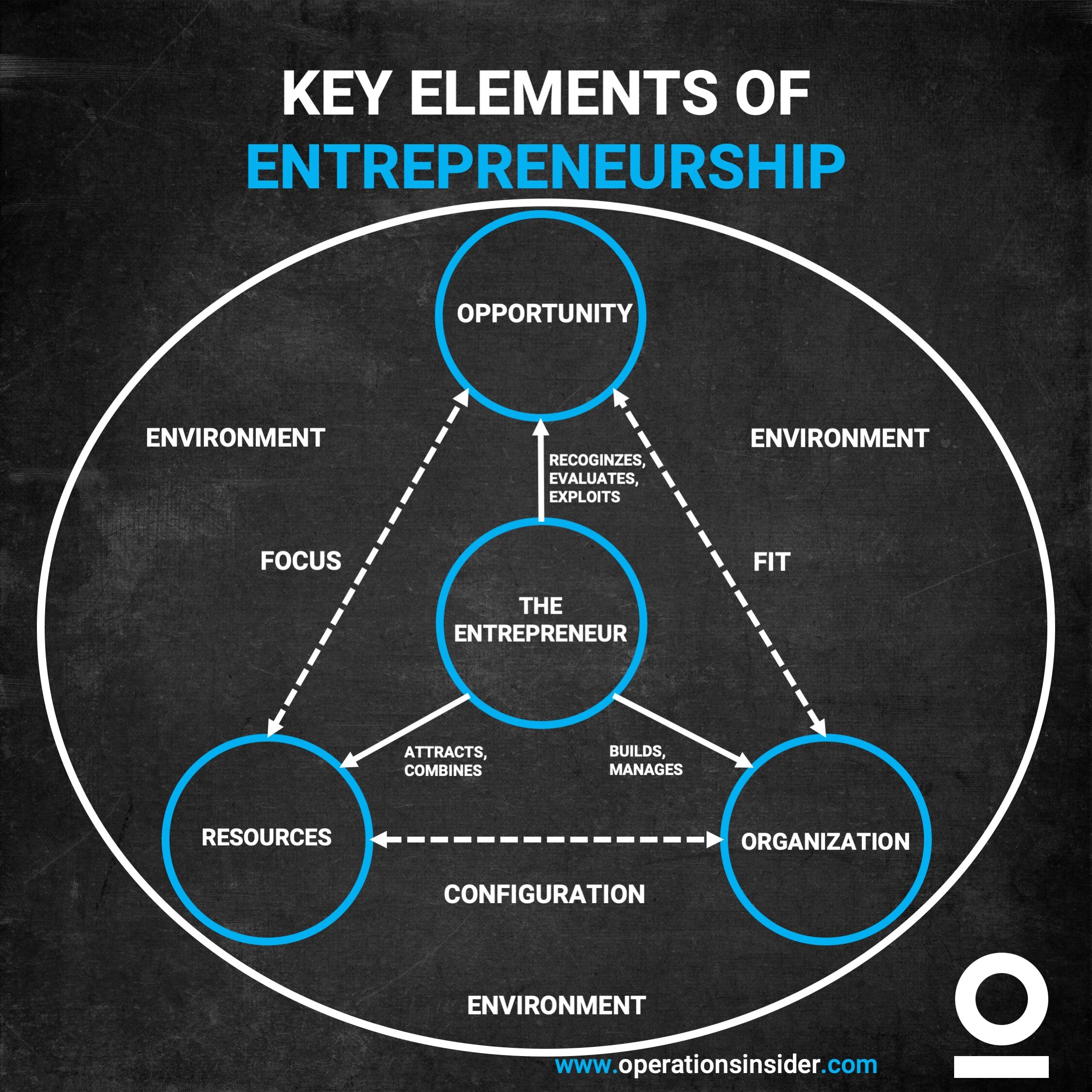ENT | 1
Entrepreneurship Part 1 - The Nature of Entrepreneurship
Some people see the entrepreneur as a mangy wolf, which must be beaten to death. Others see the cow, which one can milk continuously. Only a few recognize the horse that pulls the wagon.
Winston Churchill (1874-1965) | British Statesman and Prime Minister
Before we get starting to have a deep dive in entrepreneurship we to explain how we will handle it. In this article, “The Nature of Entrepreneurship” we will go through some definitions of entrepreneurship, state the key elements of entrepreneurship, explain the process of new venture creation and finally explain the role of entrepreneurship in economic growth.
You never know what will happen when things change. But do you know what will happen when things don't change?
Elias Canetti (1905-1994) | Author
Where does Entrepreneurship come from?
The word Entrepreneurship comes from the french word entreprendre meaning “to undertake” or “to take in ones own hands”. The term ENTREPRENEUR was first used by the Irish Banker Richard Cantillon in the end of the 18th century to describe a person that realizes an income stream under uncertain conditions.
Jean-Babtiste Say defined it even further: “An entrepreneur is a person that shifts economic resources from an area of lower productivity into an area of higher productivity and greater yield”.
During the industrial revolution the term “Entrepreneur” was used to describe an individual that strived for venture ideas, developed it, assembled resources and created a new business venture. Some famous entrepreneurs by that time have been: Rockefeller, Andrew Carnegie, James Watt, Thomas Edison and Gottlieb Daimler, just to name a few.
But before we go ahead, let’s make some definitions for a common understanding:
Entrepreneur:
A person that destroys the existing economic order by introducing new services or products, by creating new forms of organization or by exploiting new raw materials. The entrepreneur doesn’t have to be the owner of a company.
Entrepreneurship:
A process that brings out new business opportunities and converting them into marketable services and goods.
Entrepreneurial opportunities:
A new solution to the market that can be sold at a price that is higher than its manufacturing costs.
To sum it up:
Entrepreneurs use innovation to exploit or create change and opportunity for the purpose of making profit. They do this by shifting economic resources from an area of lower productivity into an area of higher productivity and greater yield, accepting a high degree of risk and uncertainty in doing so.
Burns (2005)
... a slippery concept... not easy to work into a formal analysis because it is so closely associated with the temperament or personal qualities of individuals.
Penrose (1959)
According to J.A. Schumpeter (1883-1950) a former Austrian political economist three statements on “Creative Destruction” are key:
Economic growth is the result of new technologies, processes and organizational structures, generated by innovative entrepreneurs.
As productivity rises, enterprises that are less productive disappear from the market.
This process of foundation, expansion and displacement ist the main characteristic of Creative Destruction.
Concerning the model of entrepreneurship, there are five key elements that describe the necessity of entrepreneurship in order to occur:
An individual (> The Entrepreneur)
A opportunity in the market
Adequate resources
A business organization
A favorable environment
These five factors are considered as something that must be present in order to have a fruitful journey on the path of entrepreneurship.
The Key Elements of Entrepreneurship
The entrepreneur is the basis of the entrepreneurial process - the chief conductor who perceives an opportunity, marshals the resources to pursue this opportunity and builds an organization which combines the resources necessary to exploit the opportunity.
Five factors have been identified that influence the way in which opportunities are recognized.
Internal locus of control
Prior knowledge
Social Networks
Active search for opportunities
Entrepreneurial alertness
A famous Malaysian entrepreneur, Tan Sri Francis Yeoh, once said when asked about the role of luck he said:
Don't read these books about being lucky. If you want to do something better for humanity, it's a very good start. If you want to make it because you want to be rich, I guess you will make it one day, but you are likely to be unhappy.
Tan Sri Francis Yeoh (2007)


